What to Read If You’re Angry About the Election
9 min read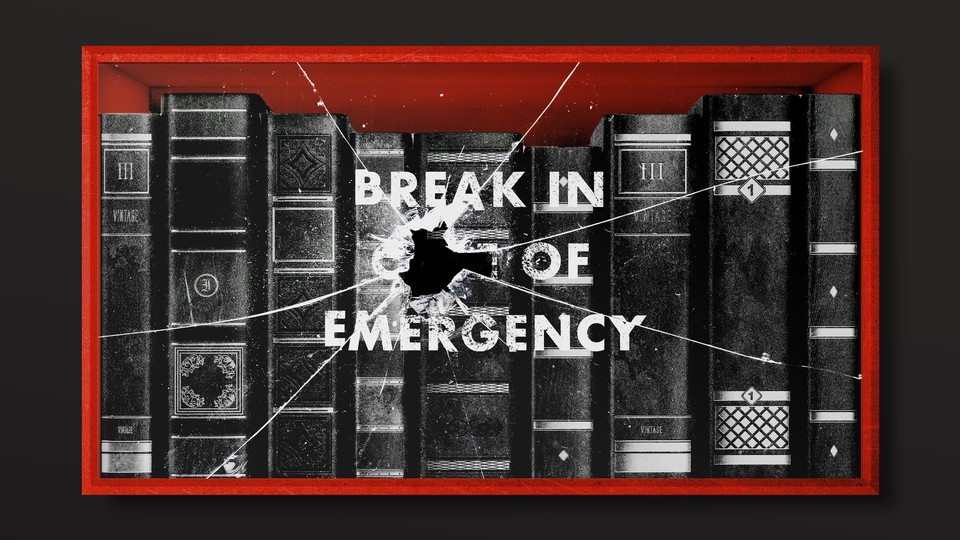
A close friend—someone whom I’ve always thought of as an optimist—recently shared his theory that, no matter what time you’re living in, it’s generally a bad one. In each era, he posited, quality of life improves in some ways and depreciates in others; the overall quotient of suffering in the world stays the same.
Whether this is nihilistic or comforting depends on your worldview. For instance, plenty of Americans are currently celebrating the outcome of the recent presidential election; many are indifferent to national politics; many others are overwhelmed with anger and despair over it. Looking at the bigger picture, I think the upsides of contemporary life—antibiotics, LGBTQ acceptance, transcontinental FaceTime—outweigh the horrors more often than not. I’ll also concede that this decade comes with a continuous drip of bad news about ghastly acts of violence, erosion of human rights, and climate disaster. Perhaps unsurprisingly, a 2023 Gallup poll found that rates of depression in the United States have hit a record high.
What can people turn to when the itch to burn everything down, or to surrender to hopelessness, feels barely suppressible? I agree with the novelist Kaitlyn Greenidge that there is power in “naming reality”—in telling, and writing, the truth about what’s happening around us. For those who are despondent about Donald Trump’s victory and feel unable to make a difference, reading might be a place to start. This doesn’t necessitate cracking open textbooks or dense political tracts: All kinds of books can provide solace, and the past few decades have given us no shortage of clear-eyed works of fiction, memoir, history, and poetry about how to survive and organize in—and ultimately improve—a broken world.
Reading isn’t a panacea. It’s a place to begin and return to: a road map for where to go from here, regardless of where “here” is. Granted, I am perhaps more comfortable than the average person with imperfect solutions. As a clinical pharmacist, I can’t cure diabetes, for example, but I can help control it, make the medications more affordable sometimes, and agitate for a better health-care system. Similarly, these seven books aren’t a cure for rage and despair. Think of them instead as a prescription.
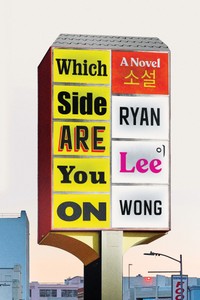
Which Side Are You On, by Ryan Lee Wong
Wong’s novel opens with a mother picking up her son from the airport in a Toyota Prius, her hands clutching the wheel in a death grip. Wry, funny moments like this one animate Wong’s book about the dilemma of trying to correct systemic problems with individual solutions. It’s 2016, and spurred by the real-life police shooting of Akai Gurley, 21-year-old Reed is considering dropping out of Columbia University to dedicate himself to the Black Lives Matter movement. Reed wants nothing more than to usher in a revolution, but unfortunately, he’s a lot better at spouting leftist talking points than at connecting with other people. Like many children, Reed believes that his family is problematic and out of touch. His parents, one a co-leader in the 1980s of South Central’s Black-Korean Coalition, the other a union organizer, push back on his self-righteous idealism. During a brief trip home to see his dying grandmother, Reed wrestles with thorny questions about what makes a good activist and person. Later, in the Prius, Reed’s mother teaches him about the Korean concept of hwabyung, or “burning sickness”—an intense, suppressed rage that will destroy him if he’s not careful—and Reed learns what he really needs: not sound bites but true connection. Wong’s enthralling novel is a reminder that every fight for justice is, at heart, a fight for one another.

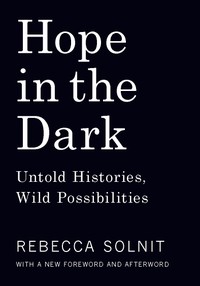
Hope in the Dark: Untold Histories, Wild Possibilities, by Rebecca Solnit
Solnit’s short manifesto about the revolutionary power of hope is a rallying cry against defeatism. She begins by critiquing the progressive tendency to harp on the bleakness of societal conditions, insisting that despair keeps oppressive systems afloat. Hope and joy, by contrast, are essential elements of political change, and celebrating wins is a worthy act of defiance against those who would prefer that the average person feel powerless. Originally published in 2004 after the U.S. invasion of Iraq, and updated in 2005 and 2016, Hope in the Dark provides modern examples of gains on race, class, environment, and queer rights. That said, this is not a feel-good book. It does not sugarcoat, for instance, the fact that we are headed toward ecological disaster. And if you look up the latest figures on the gender wage gap, you’ll find that they’ve hardly budged from those cited by Solnit years ago. Still, her deft logic and kooky aphorisms (“Don’t mistake a lightbulb for the moon, and don’t believe that the moon is useless unless we land on it”) have convinced me that to give up hope is to surrender the future. Fighting for progress can be exhausting and revelatory, full of both pain and pleasure. Solnit insists that doing so is never a waste.

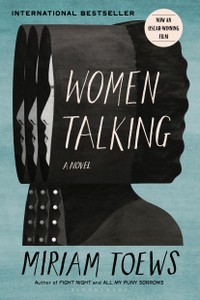
Women Talking, by Miriam Toews
The inspired-by-true-events premise of Toews’s seventh novel is literally the stuff of nightmares. In a remote Mennonite colony, women who have suffered mysterious attacks in the night learn that they’ve been drugged and raped by several men from their community. One woman is pregnant with her rapist’s child; another’s 3-year-old has a sexually transmitted infection. The novel takes place in the aftermath of the discovery, just after the men have been temporarily jailed. They are set to be bailed out in two days, and the colony’s bishop demands that the victims forgive them—or else face excommunication and be denied a spot in heaven. The women meet in secret to decide what to do: Comply? Fight back? Leave for an outside world they’ve never experienced? Even against this harrowing backdrop, Toews’s signature humor and eye for small moments of grace make Women Talking an enjoyable and healing read. The women’s discussions are both philosophical (they cannot read, so how can they trust that the Bible requires them to forgive the men?) and practical (if they leave, do they bring their male children?). Any direction they choose will lead to a kind of wilderness: “When we have liberated ourselves,” one woman says in a particularly stirring moment, “we will have to ask ourselves who we are.”

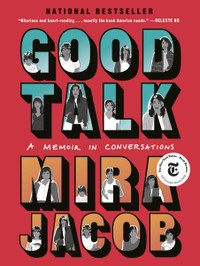
Good Talk, by Mira Jacob
Jacob’s graphic-memoir-in-conversations took major guts to write. It begins like this: The author’s white in-laws throw their support behind Trump’s 2016 presidential campaign, and her otherwise loving family toes the edge of collapse. Good Talk is a funny and painful book-length answer to questions from Jacob’s 6-year-old son, who is half Jewish and half Indian, about race, family, and identity. Jacob, who was raised in the United States by parents who emigrated from India, gorgeously illustrates her formative experiences, touching on respectability politics, colorism within the Indian community, her bisexuality, and her place in America. She refuses to caricaturize the book’s less savory characters—for example, a rich white woman who hires Jacob to ghostwrite her family’s biography and ends up questioning her integrity and oversharing the grisly details of her 2-year-old’s death from cancer. Jacob’s ability to so humanely render the people who cause her grief is powerful. My daughter is too young to ask questions, but one day, when she begins inquiring about the world she’s inheriting, I can tell her, as Jacob told her son, “If you still have hope, my love, then so do I.”

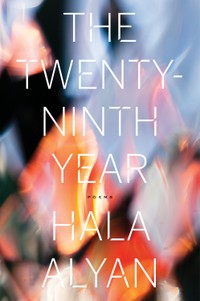
The Twenty-Ninth Year, by Hala Alyan
Startling, sexy, and chaotic, The Twenty-Ninth Year is a collection of poems narrated by a woman on the verge—of a lot of things. She’s standing at the edge of maturity, of belonging as a Palestinian American, of recovery from anorexia and alcoholism. It’s a tender and violent place, evoked with images that catch in the throat. The first poem, “Truth,” takes the form of a litany of confessions: “I broke / into the bodies of men like a cartoon burglar”; “I’ve seen women eat cotton balls so they wouldn’t eat bread.” That Alyan is a clinical psychologist makes sense—her poems have a clarity that can’t be faked. Dark humor softens the blow of lines such as “I starved myself to starve my mother” and “Define in, I say when anyone asks if I’ve ever been in a war.” She reckons with the loneliness of living in exile and the danger of romanticizing the youthful conviction that there is something incurably wrong with you. A shallow read of the collection might be: I burned my life down so you don’t have to. But I return to the last line of the book: “Marry or burn; either way, you’re transfiguring.” There is always something to set aflame; more optimistically, there is always something left to salvage. The Twenty-Ninth Year is, in the end, a monument to endurance.

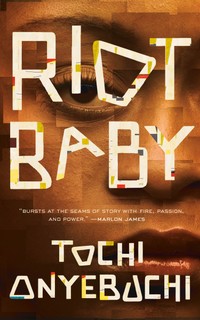
Riot Baby, by Tochi Onyebuchi
If you’re sick of books described as “healing” or “hopeful,” look no further than Riot Baby. Onyebuchi’s thrilling 2020 novella asks just how far sci-fi dystopias are from real life. Kev, a Black man born during the Rodney King riots in Los Angeles, California, spends much of his 20s in prison after a botched armed robbery. His sister, Ella, has more supernatural problems: She sees the past and the future and, when fury takes over, can raze cities to the ground—yet she could not protect her brother from the violence of incarceration. When Kev is paroled and a new form of policing via implantable chips and pharmaceutical infusions brings “safety” to the streets of Watts, Ella understands that the subjugation of her community is not a symptom of a broken system; rather, it is evidence of one “working just as designed,” as Onyebuchi put it in an interview. Ella must make a wrenching choice: fight for a defanged kind of freedom within such a system or usher in a new world order no matter the cost. In real life, too often, you cannot control your circumstances, only your actions. But you may find relief in reading a book that reaches a different conclusion.

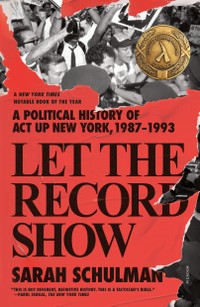
Let the Record Show: A Political History of ACT UP New York, 1987–1993, by Sarah Schulman
This 700-plus-page history of the AIDS Coalition to Unleash Power’s New York chapter is, I promise you, a page-turner. Schulman and the filmmaker Jim Hubbard, who were both in ACT UP New York, interviewed 188 members over the course of 17 years about the organization’s work on behalf of those living with HIV/AIDS—“a despised group of people, with no rights, facing a terminal disease for which there were no treatments,” Schulman writes. Part memoir and part oral history, Let the Record Show is a master class on the utility of anger and a historical corrective to chronicles that depict straight white men as the main heroes of the AIDS crisis. In reality, a diverse coalition of activists helped transform HIV into a highly manageable condition. “People who are desperate are much more effective than people who have time to waste,” Schulman argues. ACT UP was known for its brash public actions, and Schulman covers not just what the group accomplished but also how it did it, with electrifying detail. There can be no balm for the fact that many ACT UP members did not survive long enough to be interviewed. There is only awe at the way a group of people “unable to sit out a historic cataclysm” were determined to “force our country to change against its will,” and did.

When you buy a book using a link on this page, we receive a commission. Thank you for supportingThe Atlantic.



